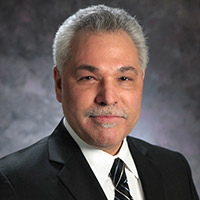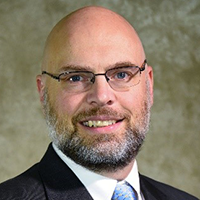
Wednesday, May 15, 2024, 9:15am
Dr. Christopher J. Freitas
Southwest Research Institute
Presentation Title: Verification, Validation and Uncertainty Quantification (VVUQ) – A Guide to Practical Implementation
Biography: Dr. Christopher J. Freitas is Program Director for Computational and Experimental Mechanics, in the Department of Engineering Dynamics at Southwest Research Institute and has over 35 years of experience in R&D. Dr. Freitas is a mechanical engineer with professional interests in modeling and simulation, experimental methods, high-performance computing and software development, and continuum mechanics. He holds a B.S. degree (1977) in Environmental & Ocean Engineering from Humboldt State University (a California State University), an M.S. degree (1978) in Civil Engineering from Utah State University (Fluid Mechanics/Hydraulics/Hydrology), and a Ph.D. (1986) in Mechanical & Civil Engineering from Stanford University (Computational Fluid Dynamics). Dr. Freitas develops and applies computational tools and experimental methods for the analysis of complex engineered and naturally occurring systems. He develops research projects that couple together modeling and simulation with large scale experiments, and has worked extensively on verification, validation, and uncertainty analysis. Dr. Freitas has written or collaborated on numerous technical papers/presentations (150+) and technical reports (200+), and holds six patents. He is a registered professional engineer in California, and has served ASME in many roles and is currently the Editor-in-Chief of ASME's Journal of Verification, Validation and Uncertainty Quantification. Dr. Freitas is an ASME Fellow, winner of the ASME Fluids Engineering Division Medal, ASME Dedicated Service Award, and the ASME Patrick J. Higgins Medal.

Thursday, May 16, 2024, 9:15am
David Aumiller
Naval Nuclear Laboratory
Presentation Title: Verification, Validation, and Qualification in Engineering Decision Making
Biography: Dr. Aumiller started working for what has since become the Naval Nuclear Laboratory in 1996. He published in the areas of automated code verification techniques, reactor safety code and methods development, plant analysis code and method development, two-phase physical model development, and experimental thermal hydraulics. His career has had a strong emphasis in reactor safety code development. He is the original developer of the COBRA-IE analysis code and was one of the original developers of the R5Exec code system. He has adjunct appointments at the University of Pittsburgh and Texas A&M University. He is a Fellow of the American Nuclear Society.